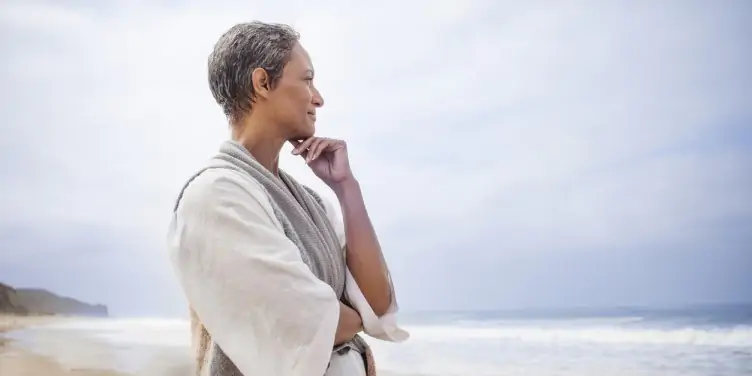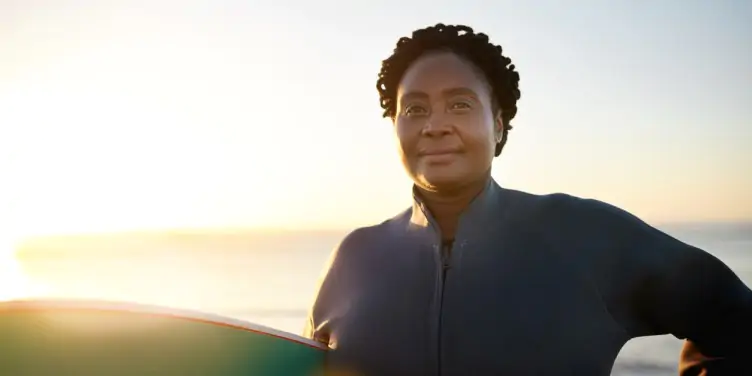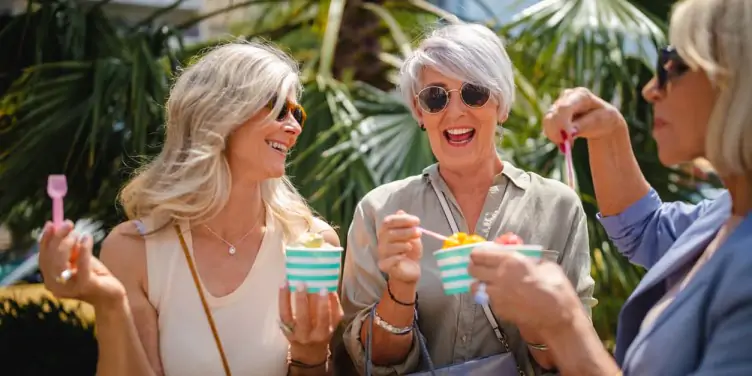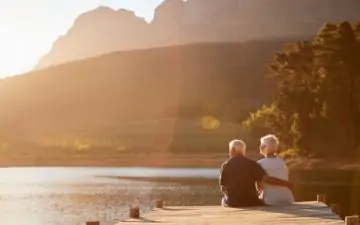Tips for travelling with breast cancer

Staysure speaks to Grete Brauten-Smith, Clinical Nurse Specialist and Lead of Younger Women with Breast Cancer for Breast Cancer Care. She shares her advice on travelling safely with breast cancer.
Speaking to Staysure, Grete explains what those with breast cancer should be aware of when travelling or booking holidays.
Can you give any holiday planning tips for women with breast cancer?
It’s worth discussing your plans with your medical team. Talk to your breast care nurse, surgeon or the oncologist to check when it’s a good time for you to travel, to see if you can fit a holiday in with your treatment plan.
Sometimes it’s possible to fit in a short break between treatments if this is something you would like to do. Planning is important as you may feel more tired than normal and need to pace yourself.
What precautions should people take before a holiday?
Check with your medical specialist when it’s a good time for you to travel. If you’re having chemotherapy for your breast cancer you are prone to infections at certain times.
Having a letter with a summary of your medical history and treatment can be helpful if you need medical assistance.
Find out how to access the local medical services where you are staying so you know what to do if you become unwell while away.
If you are travelling abroad, a GHIC or valid EHIC will enable you to access state-provided emergency healthcare in Europe (excluding Norway, Iceland, Liechtenstein and Switzerland) for free or at a reduced cost.
You can apply for a GHIC online and it’s free of charge. It’s important to note that the GHIC or EHIC is not an alternative to travel insurance that can include cover for breast cancer.
If you are going abroad, book a travel appointment with your practice nurse as soon as you start organising your trip. You shouldn’t have live vaccines like measles, rubella, polio, BCG and yellow fever while you’re having chemotherapy. It’s safe to have these vaccines six months after your chemotherapy finishes.
If you have had lymph node surgery, take your time with packing and use light luggage so that you reduce the chance of developing lymphoedema. Try to reduce stress on your arm at risk by getting help with lifting and preparation for travel.
Are there any countries or climates that people with breast cancer should avoid travelling to?
Be realistic. Generally, avoid countries that require live vaccines if you’re having chemotherapy.
You may want to avoid countries where the healthcare system is too limited or far away in case you get unwell.
If you have recently had chemotherapy or radiotherapy be aware of the hot sun.
What are people most worried about when travelling with breast cancer?
1) Airport scanners
People who have had a mastectomy (removal of the breast) sometimes wear a prosthesis (an artificial breast form). Women can be worried about going through the airport scanner and feel anxious at the idea of someone noticing the prosthesis.
You can tell the security staff that you are wearing a prosthesis before being scanned. Although this may be awkward or embarrassing, you’re less likely to be searched than if you don’t declare it.
Airport security staff are trained to treat passengers respectfully. You can also carry a letter from your GP or breast specialist, confirming your situation.
2) Risk of blood clots
Taking the drug tamoxifen and having recently had surgery increase the risk of blood clots such as deep vein thrombosis (DVT).
-
- Some tips to help prevent blood clots while travelling include:
- Rotate your feet and stretch your legs regularly by having short walks
- Keep well hydrated with plenty of non-alcoholic drinks
- Wear loose fitting, comfortable clothing
- Get fitted with below the knee support socks from a reputable pharmacy if you are travelling long-haul
3) Lymphoedema
Many women worry about developing lymphoedema (swelling of the arm) after breast cancer surgery.
Using insect repellent to prevent insect bites is important to reduce this risk. If you’re travelling to a country where quick access to good quality healthcare is difficult, you may want to ask your GP for a course of antibiotics to take with you.
If you develop signs of an infection in your ‘at risk’ arm or hand, you can then treat the infection as early as possible.
What tips can you offer people travelling with medication for breast cancer?
Bring enough medication to last your whole trip plus some extra in case of any delays.
It’s best to pack medication in your hand luggage in case any checked-in baggage is delayed or lost.
Keep all drugs in their original packaging in case you need medical assistance so the team abroad know what medication you use.
Are there any activities that people with breast cancer should avoid?
You may be more tired than usual so pace yourself.
Breast cancer treatments such as radiotherapy and chemotherapy can make skin more sensitive, so take care in the sun by covering your skin and wearing a hat.
Use sunscreen with a high sun protection factor (SPF) and avoid going out in the hottest part of the day (11am–3pm).
Are there any tips for partners of people with breast cancer?
Be sensible and supportive.
Your partner may feel tired and exhausted at times but may still want to do certain things they enjoy while they are away. Work out together what you both want to do, you are probably both in need of a well-earned break.
In your opinion, does having breast cancer stop people enjoying their holidays?
Going on holiday can be a great way to relax and unwind if you’ve had breast cancer. With a bit of extra care and planning you can have a great time.
Can you give us 5 top travel tips for breast cancer?
1. Ensure you get the best travel insurance that works for you
2. Plan your destination wisely
3. Talk through your travel plans with your medical team
4. Bring your medications
5. It’s your holiday so try to relax and unwind to help recharge your batteries
For care, support and information, call the Breast Cancer Care nurses free on 0808 800 6000 or visit www.breastcancercare.org.uk.












